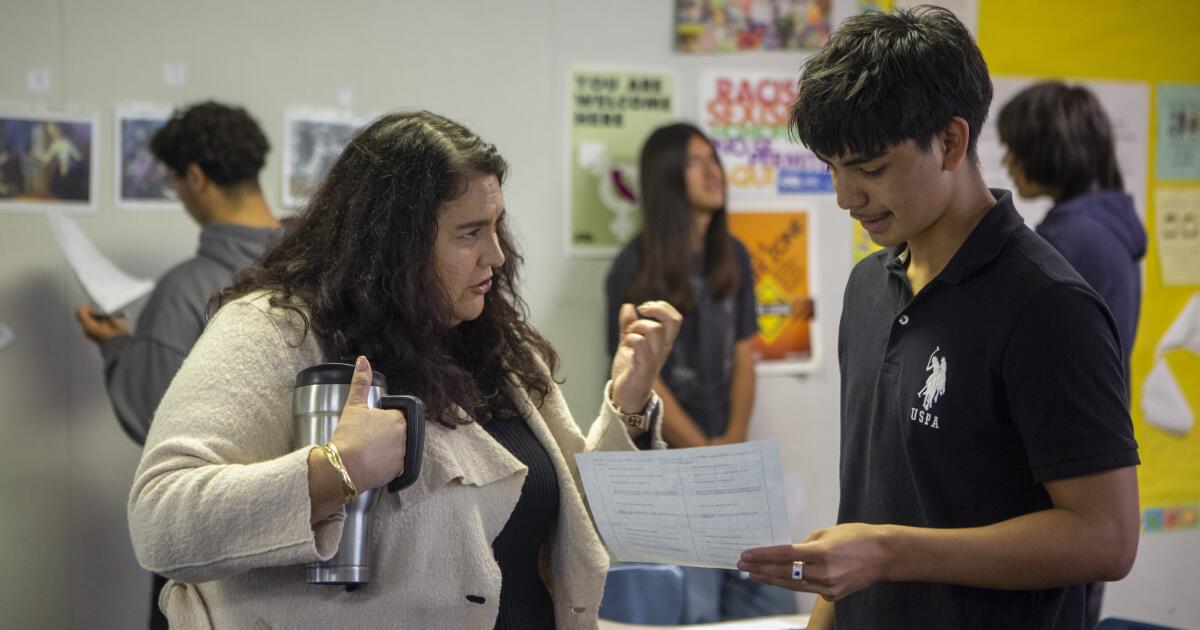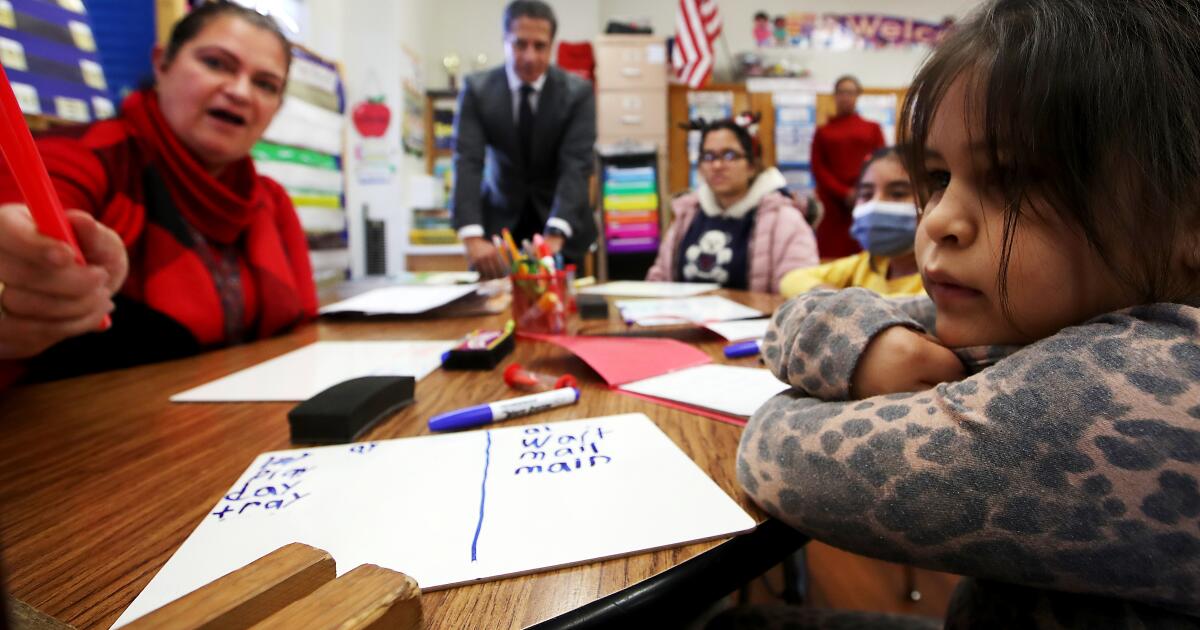Newsom signs bill that targets antisemitism and other discrimination in schools
Gov. Gavin Newsom has signed into law a bill that sets up a state Office for Civil Rights to combat antisemitism and other forms of discrimination in California schools.
Assembly Bill 715 was among the most hotly contested education-related measures, spawning from dissatisfaction, largely among a coalition of Jewish groups, to the way ethnic studies has been taught in some California classrooms.
The critics said in some schools, ethnic studies classes have improperly focused on the Israeli-Palestinian conflict and that lessons reflected bias against Jews. The allegations of bias are denied by those instructors who include lessons about the conflict in their syllabus.
The law creates a state Office for Civil Rights that reports to the governor’s cabinet. It would take on a monitoring and assistance mission — fielding complaints and questions; preparing learning materials and reports on identifying and combating discrimination; and helping teachers, schools and school districts comply with state antidiscrimination laws.
Different forms of discrimination would be addressed by a specialized coordinator — one each for antisemitism, religious discrimination, race and ethnicity discrimination, gender discrimination and LGBTQ+ discrimination.
The final version of the bill — paired with companion Senate Bill 48 — expanded beyond an initial focus on antisemitism. This revision was a response to those who questioned why the original bill language addressed only discrimination against Jews.
“California is taking action to confront hate in all its forms,” Newsom said in a statement. “At a time when antisemitism and bigotry are rising nationwide and globally, these laws make clear: Our schools must be places of learning, not hate.”
Bill co-author and state Assemblymember Dawn Addis (D-Morro Bay) called the legislation “a historic first … that centers on the well-being of children across our state, many of whom bravely shared horrific stories about their experiences in our schools.”
The bill drew strong opposition from teacher unions, faculty groups, Muslim organizations and liberal groups who worried about the suppression of discussion about current events in the Middle East.
A surge of antisemitism
Antisemitic incidents increased in the wake of the Israel-Hamas war that began with a Hamas attack on Oct. 7, 2023, that killed about 1,200. The war continues with Israel’s campaign to eradicate Hamas, leading to a Palestinian death toll estimated at more than 67,000, according to Gaza’s Health Ministry.
At a recent news conference in support of the bill, a Jewish student told of her experience at a public middle school in the Bay Area.
“After Oct. 7, everything changed,” said Ella, who was identified only by her first name. “People who I thought were my friends turned on me. They called me the Jew. They told me that my family is living on stolen land, and yelled at me that I was a murderer and a terrorist. They even started to chase me, and I had to run away for my own safety just because I’m Jewish and I speak Hebrew. I didn’t deserve any of this.”
Ella said some staff members, instead of providing support, expressed biased views.
No matter what a student believes or who they are, “every student deserves to be safe, valued and respected,” said bill co-author and Assemblymember Rick Chavez Zbur (D-Los Angeles).
The final — and much amended — version of the bill received overwhelming support in the Legislature. The vote in the state Assembly was 71 yes, 0 no with 9 abstentions; the vote in the state Senate was 35 yes, 0 no, 5 abstentions.
But this outcome belied an extended, hard-fought debate.
The original legislation targeted ethnic studies — or certain versions of how it was being taught. AB 715 evolved, however, to take on antisemitism more broadly.
A contentious debate
The legislation drew resistance from organizations including ACLU California Action and the California Teachers Assn. Leading voices among the critics also included pro-Palestinian and Muslim groups, a large faction of ethnic studies teachers and some Jewish groups that are strongly critical of the Israeli government.
ACLU California Action warned of a “chilling effect on constitutionally protected speech by educators and students.”
“We abhor and condemn antisemitism in any form,” the California Teachers Assn., wrote in a July letter to the state Senate Education Committee. But “at a time when there are those that seek to weaponize public education, AB 715 would unfortunately arm some ill-intentioned people with the ability to do so.”
The bill coincided with Trump administration actions to combat antisemitism — and to suppress pro-Palestinian activism — as part of his wide-ranging ideological push. Those actions and AB 715 became inevitably associated in the public discourse.
Leading bill supporters, including state Sen. Scott Wiener (D-San Francisco), strongly objected to any linkage with the Trump administration.
“There’s a false and extremely dangerous narrative being peddled,” Wiener said in an August news conference. “It is an effort to basically say that if you are claiming antisemitism by anyone other than right-wing extremists, you’re somehow aligning yourself with Donald Trump. That is deeply, deeply offensive, and it is a lie.”
The ethnic studies connection
Although the bill evolved, it retained a mechanism to raise issues related to how ethnic studies is taught.
The bill speaks of ensuring antidiscriminatory course and teacher-training materials. To investigate formal complaints, the state would rely on an existing complaint procedure, which examines alleged violations involving discrimination, harassment, intimidation and bullying.
Some critics of AB 715 acknowledged that the bill was revised to address their concerns but they still opposed it. They continue to worry that the new law will chill discussion of controversial issues in ethnic studies and elsewhere — and also falsely equate legitimate criticism of Israel with antisemitism.
There also was criticism on the right from Will Swaim of the California Policy Center — which said the bill that emerged was too watered down. It had become a “do-nothing law that promises to do everything,” Swaim wrote, while creating a new state bureaucracy in the process.

